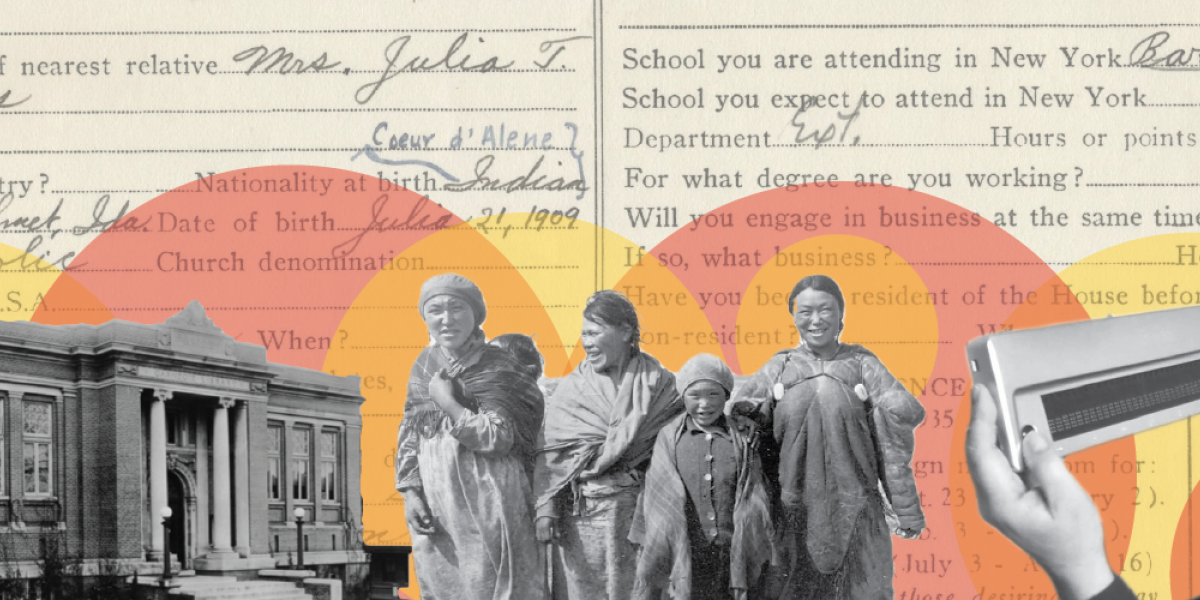3 Faculty Members Awarded $1.4 Million to Develop Library and Archival Services
The Institute of Museum and Library Services (IMLS) Laura Bush 21st Century Librarian Program awarded 3 Professors funding which supports the training and professional development of a diverse network of library and archives professionals.

University of Maryland (UMD) College of Information Studies faculty members Dr. Richard Marciano, Dr. Diana Marsh and Dr. Victoria Van Hyning were awarded a combined total of $1.4 Million in Funding from the Institute of Museum and Library Services (IMLS) Laura Bush 21st Century Librarian Program, which supports the training and professional development of a diverse network of library and archives professionals to meet the information needs of their communities.
Dr. Richard Marciano was awarded a $400K Implementation Grant (co-PI, Anne Gilliland at UCLA) to launch the TALENT Network to promote the Training of Archival & Library Educators with iNnovative Technologies. TALENT brings together experts from across the United States (including archivists, librarians, Library and Information Science educators, historians, learning scientists, cognitive scientists, computer scientists, and software engineers) in order to create a durable, diverse, and multidisciplinary national community focused on developing digital expertise and leadership skills among archival and library educators (see: LINK for list of collaborators). The network will focus on four major objectives: (1) Double an existing Piloting Network of iSchools by adding several multidisciplinary LIS schools with a focus on “adjacent” fields (e.g., computer science, engineering, data science, and education), providing substantial opportunities for archivists and librarians with digital and computational skills, (2) Engage HBCU students (Historically Black Colleges and Universities) in the greater Atlanta community through a pilot program with two HBCUs: Spelman College and Clark Atlanta University (CAU), with coordination support from the Georgia Tech Library, (3) Conduct curriculum development using Jupyter Notebooks through experts from two Learning Science networks, and (4) Address the social and ethical concerns that arise from computational and algorithmic thinking through a partnership with the UCLA Center for Information as Evidence (CIE).
Dr. Diana E. Marsh was awarded $496K to fund her Early Career Research Development project. She will partner with an Indigenous advisory board, Tribal project archivists, and Indigenous focus groups to investigate if the Social Networks and Archival Context (SNAC) can be used as a platform to locate and reconnect communities with their archival materials. The project builds on her previous work on improving Indigenous representation in SNAC with Irene Gates (New School), Katherine Satriano (Harvard), Dina Herbert (NARA), Jerry Simmons (NARA), and Lydia Curliss (current iSchool PhD student), who also made significant contributions to the grant application. The project largely funds the training and career development of Indigenous information scholars, as well as providing professional development training for four Tribal Project Archivists, and an Indigenous film student, while providing space for Indigenous students and professionals interested in these topics through focus groups.
The results of this research project will create a replicable model for other genres and communities currently marginalized in archival collections, contribute to a shift in practice toward reparative description across the archival field, and increase the visibility of Indigenous histories and figures, both for communities and in public discourse.
Dr. Victoria Van Hyning was awarded $458K for her Early Career Research Development project to investigate the challenges and barriers that libraries, archives, and museums face when they try to integrate crowdsourced transcriptions of cultural heritage material into their content management systems. Her project team will gather and analyze data from surveys, interviews, data integration demonstrations and user testing provided by 12 LAM partners and people who are print disabled and utilize screen reader to search and access text resources online. Van Hyning’s team will produce individualized reports for each LAM Partner recommending pathways for successful data integration and accessibility of their crowdsourced transcriptions; a summative white paper for a broader readership, and open-access journal articles. The results of this investigation will help LAMs adapt their crowdsourcing workflows, and support people who use screen readers by improving their accessibility to cultural heritage through the LAM CMSs.
These awards are great examples of how the UMD College of Information Studies envisions a world where information and technology breaks down barriers and creates exciting new possibilities so that individuals, communities, and organizations can explore their full potential. We aim to create a world where information and technology can be fully leveraged to solve real-world problems and foster a culture of trust and respect.